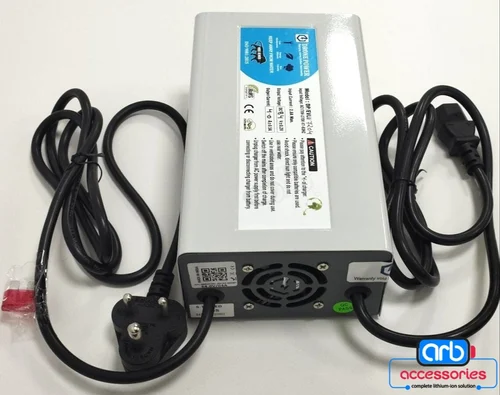Drone Power 42V-5AMP EV Bike & E-scooter charger, NMC
₹2,000.0
Product Specification
| Output Voltage | 42 V |
| Vehicle Type | Bike |
| Usage/Application | EV Bike & E-Scooter |
| Brand | Drone Power |
| Battery Type | NMC |
| Warranty | 1year |
| Battery Voltage | 42v |
| Current | 5amp |
| Pin Type | 3 PIn |
| Color | Grey & Black |
| Material | Aluminum |
| Is It Rechargeable | Rechargeable |
| Wheels Available | No |
| Cooling Fan | Yes |
| Country of Origin | Made in India |
| Minimum Order Quantity | 1 |
Product Description
We have NMC/ LFP/ Lead acid type Chargers available for more enquiry contact us.
- Description
- Additional information
- Reviews (0)
- Q & A
- Sustainability Remark
- More Offers
- Store Policies
- Inquiries
| brands | Drone Power |
|---|---|
| Color | Grey & Black |
You must be logged in to post a review.
Q & A
The sustainability of electric vehicle (EV) chargers depends on several factors, including their energy source, materials used, and overall lifecycle impact. Here are some considerations regarding the sustainability of EV chargers:
Energy source: The sustainability of an EV charger heavily relies on the source of electricity used for charging. If the electricity is generated from renewable sources like solar, wind, or hydroelectric power, it significantly reduces the carbon footprint of charging. However, if the electricity is derived from fossil fuels, the environmental impact is higher, as it contributes to greenhouse gas emissions.
Efficiency: The efficiency of an EV charger determines how effectively it converts electricity into a charge for the vehicle's battery. Higher efficiency reduces energy waste and minimizes the overall environmental impact. Energy Star ratings or other efficiency certifications can help identify more sustainable chargers.
Lifecycle impact: Assessing the lifecycle impact of an EV charger involves considering the environmental consequences of its production, use, and disposal. Sustainable chargers are designed with eco-friendly materials, use energy-efficient components, and prioritize recyclability. Manufacturers that adhere to environmentally conscious manufacturing practices and promote recycling initiatives contribute to the sustainability of their chargers.
Infrastructure planning: Strategic placement and planning of EV charging infrastructure contribute to sustainability. When charging stations are strategically located, it reduces the need for long-distance travel for charging, minimizing energy consumption and associated emissions.
Scalability and future-proofing: Sustainable EV chargers are designed to accommodate future technologies and developments in the electric vehicle industry. Ensuring chargers can adapt to emerging standards, higher power outputs, and different connector types reduces the need for frequent replacement and minimizes electronic waste.
Grid integration and demand management: Smart charging solutions can optimize the use of renewable energy sources, minimize grid strain, and reduce costs. By leveraging technologies like vehicle-to-grid (V2G) systems or demand response programs, EV chargers can contribute to grid stability and promote sustainable energy usage.
Maintenance and support: Regular maintenance and updates of EV chargers are essential for their long-term sustainability. Ensuring proper functioning and reliability minimizes waste from premature replacements.
It's worth noting that sustainability is a continuous process, and advancements are being made to improve the environmental impact of EV chargers. Government regulations and industry standards are also evolving to encourage sustainable practices in the design, manufacturing, and operation of charging infrastructure.
General Inquiries
There are no inquiries yet.







Reviews
There are no reviews yet.